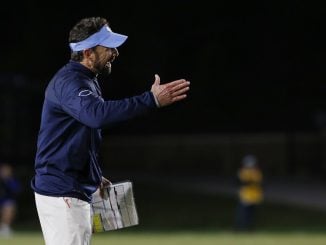
Many of the images from the Texas Gulf Coast and its biggest city Houston are heartbreaking and haunting. One eerie photo captured nursing home residents calmly sitting in waist deep water waiting for evacuation. Already over 2,000 citizens of Houston have been rescued from the rising floodwaters from Hurricane Harvey, many of them in dramatic fashion. “This is a Texas-sized storm and we are pulling together with a Texas-sized response: neighbor to neighbor, house to house, street to street,” declared the state Lt. Gov. Dan Patrick. Some of the imagery is hard to watch. Yet it serves as a collective reminder of our responsibility to those in need, especially the more vulnerable due to age, disabilities or socioeconomic circumstances.
ABC News captured the armada of rescue boats maneuvering around stranded vehicles in Dickinson, Texas. Photos of the renowned volunteer Cajun Navy headed to Texas plastered social media. I wrote about that spontaneous call to action during last year’s flooding in Southeast Louisiana. The devastating flooding wreaking havoc along the Texas Gulf Coast is as a reminder of the importance of a robust civil society and how our nation is stronger when it is united and working together. Many of the rescued are not saved by professionals, but brave and quick thinking neighbors or volunteers patrolling the waters looking to save lives.
During natural disasters, much of the national media focuses on what the federal government is going to do and the efficiency of their response, especially in our post Hurricane Katrina America. However, the federal government often plays a more limited role in the initial catastrophe, and like Katrina, in the wake of Hurricane Harvey, it will be America’s churches and charitable organizations that drive the most important and efficient relief and rebuilding efforts. This despite a FEMA budget that has gone from a little under $3 billion by the end of the 1990s to $22 billion annually.
In fact, FEMA administrator and Newton, North Carolina native Brock Long was adamant that “we need citizens involved” in Texas because the storms and flooding “are greater than the government can handle.” Only about 13 percent of FEMA employees dispatched to the region are involved in search and rescue in Texas, and that number is up from past disasters. It was mostly parachurch disaster relief groups that literally cut through the rubble of Katrina to serve hot meals and clean water the day after that historic hurricane. After tornadoes decimated parts of Alabama and the Southeast in 2011, even the Red Cross deferred to the expertise of Southern Baptist Disaster Relief (SBDR) and called their hot mobile food trucks a “well-oiled machine.”
Many charitable organizations are equipped, unlike government, to cut through the massive tentacles of red tape to help people rebuild immediately, while truly understanding the need over a one size fits all bureaucracy. They too have an innate sense of calling and mission to go beyond merely taking care of the material needs of families and individuals.
Despite the heartbreak of disasters like Hurricane Harvey, images of people and communities across the nation coming together displays our strength. It’s a reminder too that America is stronger than our divisions, even when those rifts are constantly fanned by the media or certain political figures.
There are still many examples of petty citizens trying to foment political discord during a disaster, such as Keith Olbermann’s profanity laced response to U.S. Secretary of Education Betsy DeVos on social media, who had the gall to offer the people of Texas her thoughts and prayers. But it’s largely the civilians and the anonymous who remain the greatest heroes of Hurricane Harvey. America is great when its people have the freedoms and independence to help each other. Even the federal response is no match for the citizen armies of compassion and its vast network of charities.



